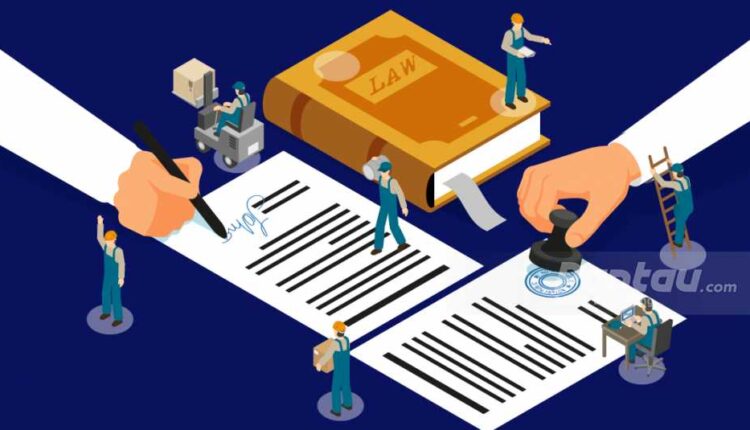The Job Creation Law Requires Companies to Compensate for PKWT
By: Alfisyah Dianasari ) *
Employees who are included in a certain time work agreement, aka PKWT, are workers who work in a contract system. If his contract period is over, then he can no longer work at a company. The government helps them, by making a derivative regulation of the Job Creation Law which contains the company’s obligation to provide compensation to PKWT.
Nowadays, finding work is a bit difficult. Especially during the pandemic, many employees were even dismissed rather than recruited. When there is a vacancy, it turns out that the job is only for a certain time, aka PKWT. If accepted, the employee will be upset because they can only work for a limited time, according to the work contract.
PKWT workers are not employees but , so their fate is rather sad. To reduce unemployment in Indonesia, as well as to help PKWT, there is a derivative regulation of the Job Creation Law that addresses it. So that contract employees will no longer be sad when their working period ends and they are constantly looking for new vacancies, so they don’t concentrate while working.
In the derivative regulations of the Job Creation Law, namely Government Regulation number 35 of 2021, a work agreement is regulated within a certain time. Employees on PKWT basis contracts will receive compensation from the company, when their working period ends. This compensation is very grateful because they can have handheld money while looking for other jobs.
Each company is obliged to provide compensation to PKWT workers, either with a short or long contract. If there is a violation, it will be disemprit by the Manpower Office. They must not take the rules for granted. Moreover, the derivative rules of the Wajb Job Creation Law are implemented in the field. It’s not just on paper.
The amount of compensation provided by companies to PKWT workers varies, depending on the length of their work. If the working period is long, the compensation will automatically be large. For example, a worker with a 12 month contract, the compensation is 1 month of wages. Likewise with workers with a contract period on it.
Meanwhile, workers with contracts for a month to 11 months are done by dividing the working period by the number 12, then multiplying the monthly salary. So that they will feel justice, because they are also entitled to get compensation from the company. Even though they have status as a contract employee, they also enjoy compensation money for holding.
The labor union also had problems with contract workers, aka PKWT. They protested strongly, but unfortunately this system cannot just be abolished. Because if there are temporary projects, such as toll road construction, then the work is also temporary. If all of them become permanent workers, they will be confused because there will be no new work.
In the derivative regulations of the Job Creation Law, it is explained that there are 2 types of PKW T. Namely PKWT employees based on the period of time, and based on the completion of work. PKWT employees are based on tenure, usually for jobs that are not too long or seasonal. Meanwhile, PKWT is based on the completion of work as described above.
If they receive compensation, of course they will not be confused when the contract or work is completed. Because the money can be partly used for kitchen needs and children’s needs. Also use it for transportation costs, when looking for a new job . Compensation can also be used as business capital, so that they switch from being employees to businessmen and trade with an independent spirit.
Providing compensation to PKWT workers is a gift, because they will get money from the company. This regulation is mandatory, so company owners cannot escape. PKWT workers will feel appreciated and cared for by the government, because they receive justice, even though their status is not a permanent employee.
) * The author is a contributor to the Indonesian Strategic Information Studies Institute (LSISI)
